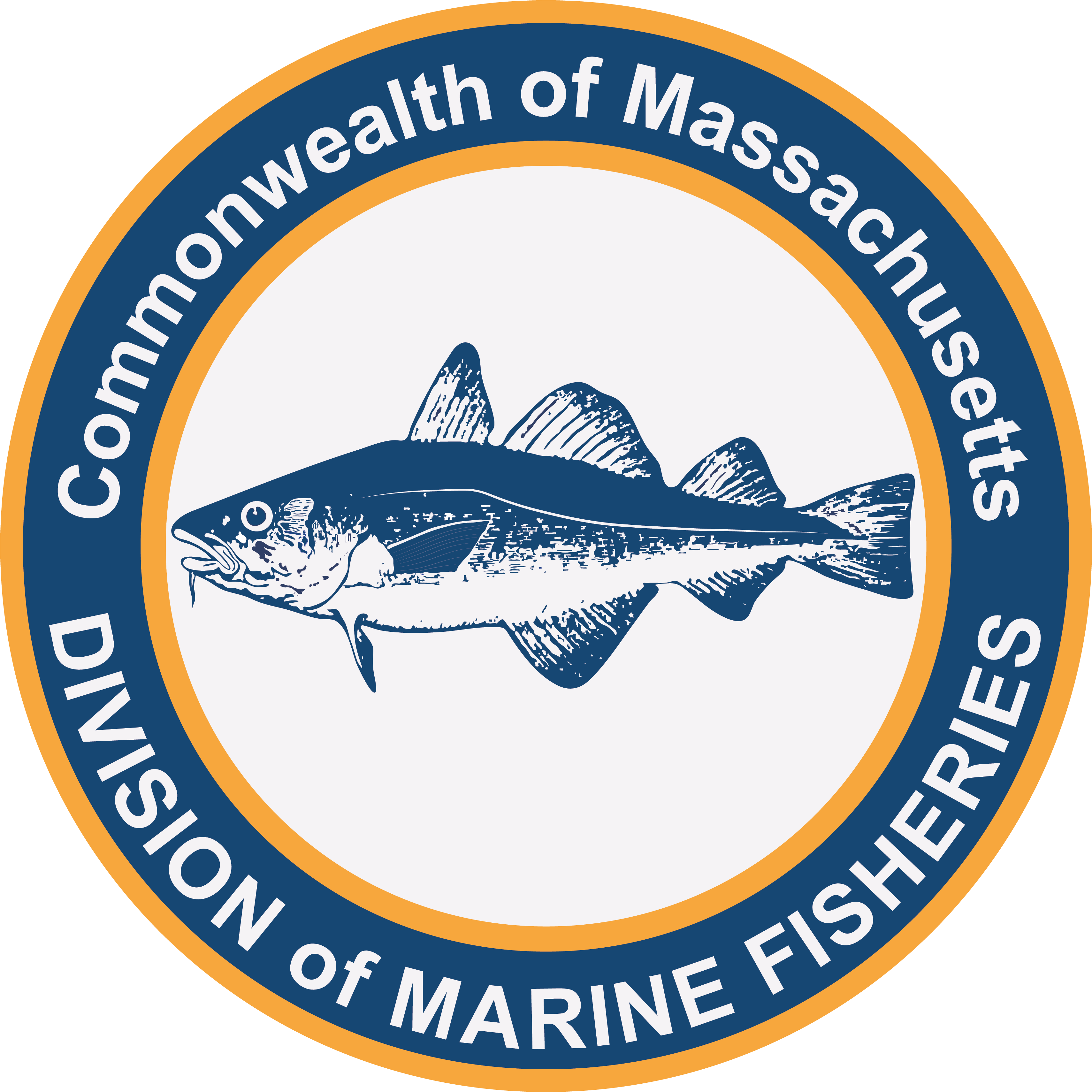- Division of Marine Fisheries
Our state waters are a rich environment and help support commercial and recreational fisheries among many other opportunities for access and enjoyment of our coastline. At times, whether due to the vagaries of nature or demand for some species or experience, conflicts can arise between different user groups. When these situations occur, a central role of DMF is helping to reduce conflict around our publicly held natural resources. Such a situation arose during the summer of 2023 when a relative shortage of menhaden in and around Boston Harbor led to conflicts on the water and multiple calls for DMF to act.
Menhaden have a long history in the United States as an important commercial fish and provide a substantial ecosystem function as a forage base for larger predatory fish, whales, and birds. While not a food fish, anglers value having large numbers of menhaden in local waters because they attract striped bass and tuna to nearshore waters, leading to excellent fishing opportunities. Additionally, the purse seine fishery for menhaden is a historic commercial fishing activity in Massachusetts and our local commercial fleet provides bait for our lobster industry, as well as other local fishers and tackle shops. These competing activities, often happening at the same time and in similar locations, have driven a persistent user group conflict over the use of menhaden in our nearshore waters. However, this is a shared resource, and a collective effort is needed to de-escalate conflicts, in both how we manage this fishery and how different users interact on the water.
Menhaden is managed at the coastwide level by the Atlantic States Marine Fisheries Commission, which sets coastwide and state-by-state commercial quotas; each state then manages its own quota. In 2024, Massachusetts commercial quota is 10,838,902 lbs. DMF manages the harvest of this quota, caught primarily by purse seine vessels, through a detailed program with the goals of landing the quota while providing consistent bait for local fisheries and minimizing conflict with other users on the water. The management program includes a season start date, limited entry permitting, daily possession limits that drop through quota utilization triggers, no fishing days on Saturday and Sunday, and limitations on fishing activity in certain harbors and embayments. Additionally, DMF issues permit conditions on the seiner’s permits that require them to “avoid concentrations of recreational fishing vessels.” Get the details on the 2024 rules.
Last year was particularly challenging because of the limited availability of menhaden in Massachusetts’ inshore waters during the summer season. This localized low abundance increased the competition between the commercial and recreational fishers for limited schools of fish. This was particularly problematic in Boston Harbor. DMF received numerous comments and complaints from both recreational anglers and commercial seiners about on the water conflicts and competition for schools of menhaden. Often these reports were conflicting and difficult to sort out.
To help reduce conflict in 2024, DMF held a meeting in late March between recreational striped bass anglers and commercial menhaden purse seine vessels that operate in Boston Harbor. The specific goals of the meeting were to bring key representatives of both groups together to discuss the issues, learn more about menhaden management, enhance communication, and begin to create a culture of cooperation on the water. Representatives from both user groups attended, along with members of the Marine Fisheries Advisory Commission and DMF staff. DMF appreciated the chance to meet with representatives from both sectors and hear their concerns and foster a dialogue between the groups. This meeting was a positive step and has hopefully laid the groundwork for communication and cooperation among users rather than conflict.
As of the writing of this article, it is still early in the 2024 fishing season and purse seining has only been allowed in Boston Harbor for two weeks. No reports of conflicts have been received to date. Conflict may also have been reduced through regulatory changes; in 2024, the commercial menhaden fishery opened on May 15, a month earlier than 2023. This has resulted in 61.5% of the quota being caught through June 12, mostly outside of the inshore harbors and embayments. Conflicts over limited resources are inevitable over time and DMF is committed to helping all of the user groups in Massachusetts waters better communicate and cooperate so that we can all enjoy our waters and the outstanding opportunities they provide.
By Ben Gahagan, Recreational Fisheries Program Leader, and Story Reed, Assistant Director

